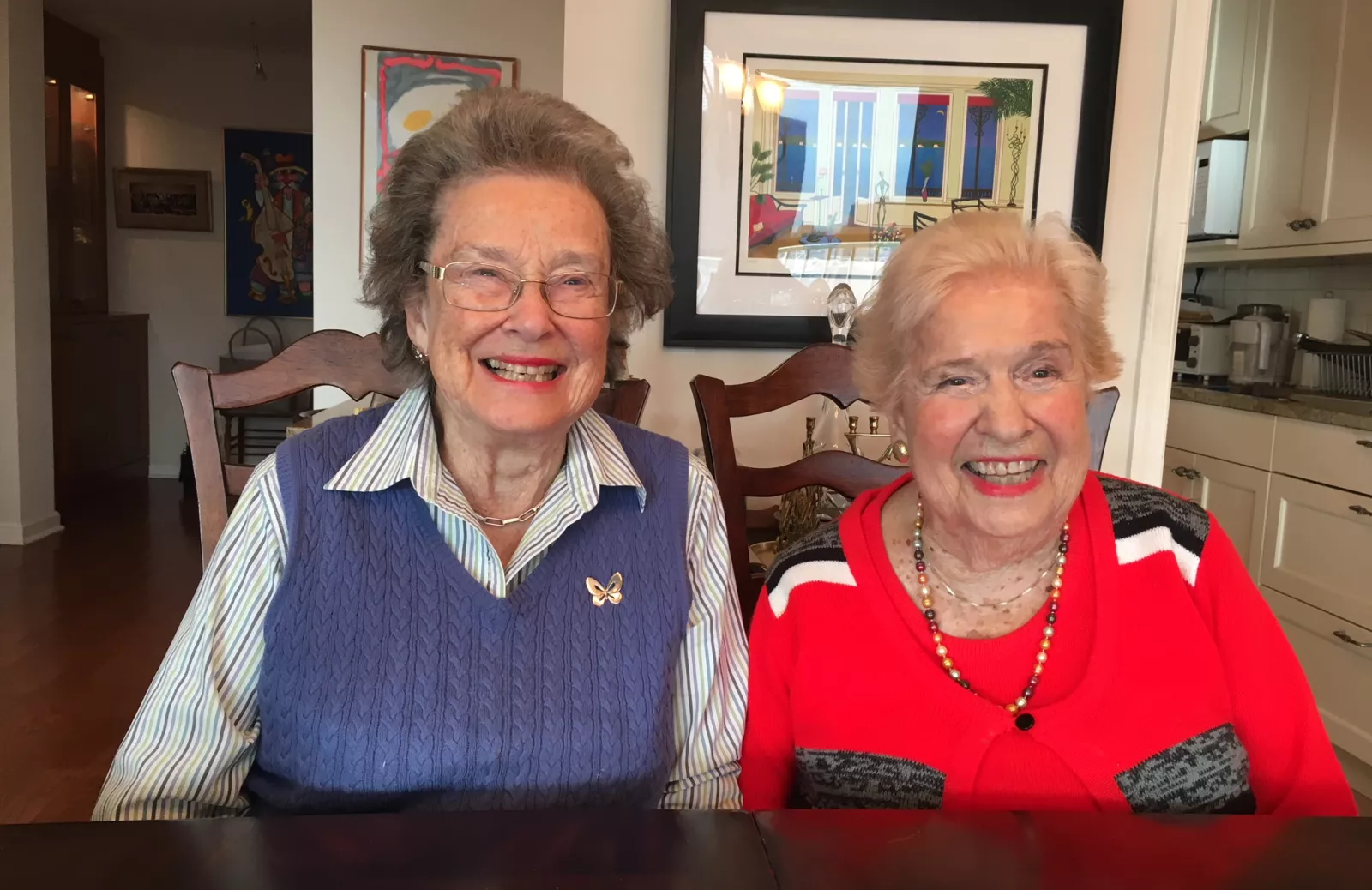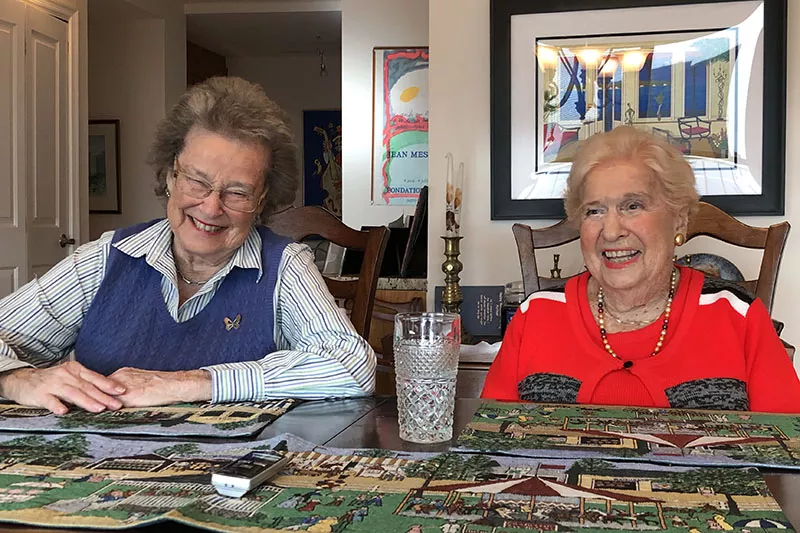
“… It’s part of who we are.”
Sisters Nona Piwosky Abrams '45 and Joan Piwosky Wohl '51 attended Bryn Mawr at two very different times in history — Nona during World War II and Joan six years later. Their experiences and understanding of the world differed greatly, but they are both deeply connected as sisters and as Mawrters.
Nona on her arrival at campus:
When I was first accepted, I was assigned to Rhoads Hall North. I said, "Where in the world could that be?" It wasn’t in the catalogue. I was so upset. We drove onto campus, and didn’t know where to go, and I was very nervous. I remember saying to Mother and Daddy, ‘If I don’t like that place, I don’t really want to stay." Then we pulled up in front of this magnificent building that was only about three years old, so it never appeared in the catalogue. When I saw that, oh my gosh, I couldn’t believe it.
How did sharing Bryn Mawr, even though you were there at different times, impact your relationship as sisters?
Nona: Oh, we used to love to do the maypole dance together.
Joan: Oh, yes. We have done it all over the world.
Nona: Wherever we go.
Joan: Whenever we have done a little imbibing at a family occasion, I am often requested to sing the Bryn Mawr song. It always gets a good laugh. And Harvey (Nona’s husband) was so proud of the fact that he was married to a Bryn Mawr girl. Milton (Joan’s husband) felt the same way. They just loved the idea of Bryn Mawr.
Joan: Bryn Mawr is a part of who we are. Even though we are six years apart, the institution has this world about it which is the same.
Nona: My mother, who never went to College, was so proud that she had two daughters who went to Bryn Mawr.
On attending college during World War II:
Nona: Pearl Harbor happened on Dec. 7 of my freshman year and it just cut through the whole College immediately. Everything we started out doing, we were no longer doing. Not only that, but because they took so many people for the war effort, I had very few professors. In the middle of my freshman year, my French professor, who was brilliant, was taken to France to work …
Joan: The one that was in the Resistance?
Nona: Yes. And we were so sad that we lost her. I lost a math professor. I lost a history professor. Many of the students wanted to finish college faster so they could help the United States in the war effort. A good number of people in my class accelerated. So we did not have the cohesion and the continuation. May Day did not survive much of the war, so I don’t have that experience. It was just a very different time.
"My mother, who never went to college, was so proud that she had two daughters who went to Bryn Mawr."
What is special about Bryn Mawr?
Joan: It was incredible what Bryn Mawr did for us. I remember when I went to law school, I had no problem taking exams because we had gone to a school where everything was blue book. You had to think. Bryn Mawr trained you to think. It also got us to meet people who were not in our social sphere. I remember my freshman year I learned a new word, “Bermuda.” I didn’t know where Bermuda was. I had never heard of Bermuda. Our family, we went to Atlantic City, you know?
Nona: You just felt empowered, even when you were very young, that you knew that people would listen to what you said.
Joan: You learned about who you were and who you were not.
On staying connected and going back to reunions:
Joan: You’ll find out as you get older that the experiences you shared become more precious. Anything bad that happened, it’s gone. You don’t even think about it. You only remember the happy times, and you remember the silly times.
I Met My
In honor of Valentine's Day, Project Mawrter celebrates the many different kinds of relationships that bloom at Bryn Mawr.
